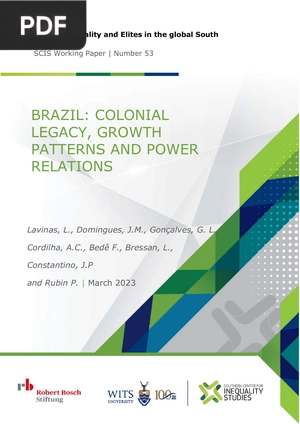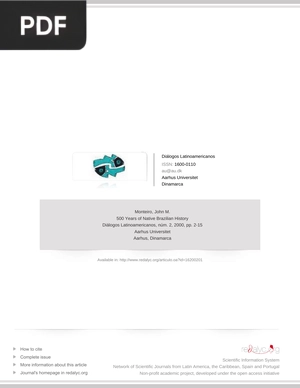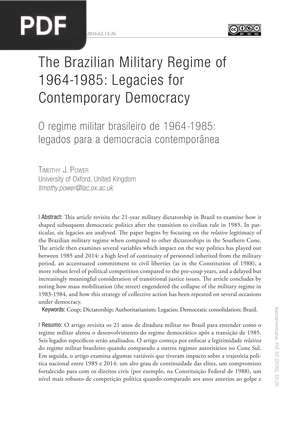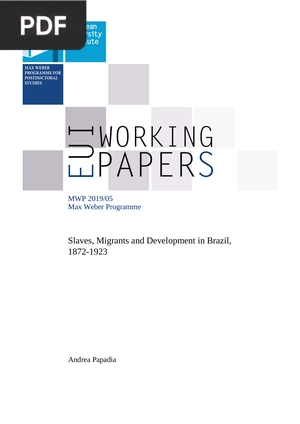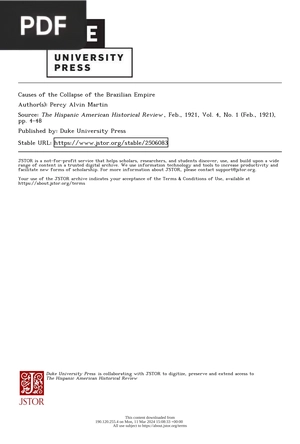A Brazilian monarchy in the twenty-first century: anachronism and alleviation
Author: Jules Arts
*Wait a few seconds for the document to load, the time may vary depending on your internet connection. If you prefer, you can download the file by clicking on the link below.
Information
Description: A Brazilian monarchy in the twenty-first century: anachronism and alleviation by Jules Arts provides a historical analysis of Brazil's monarchy and its transition to a republic. It examines the potential benefits and implications of restoring a monarchy in Brazil.
Pages: 15
Megabytes: 0.12 MB
This may interest you
Brazil: colonial legacy, growth patterns and power relations
Extension: PDF | 23 pages
Brazil: Colonial Legacy, Growth Patterns and Power Relations by Lavinas, L., Domingues, J.M., Gonçalves, G. L., Cordilha, explores the colonial history of Brazil, including the impact of slavery, land inequality, and political dynamics during the colonial and imperial periods. It sheds light on the social structure and economic development of Brazil, highlighting the legacy of colonialism and its relevance to understanding the country's history.
500 Years of Native Brazilian History
Extension: PDF | 15 pages
500 Years of Native Brazilian History by John M. Monteiro provides a historical perspective on the colonization and impact on indigenous populations in Brazil. It sheds light on the often ignored history of native peoples and challenges the celebratory narrative surrounding the quincentennial of Pedro Álvares Cabral's arrival in Brazil.
The Brazilian Military Regime of 1964-1985: Legacies for Contemporary Democracy
Extension: PDF | 14 pages
The Brazilian Military Regime of 1964-1985: Legacies for Contemporary Democracy by Timothy J. Power is an analysis of the 21-year military dictatorship in Brazil and its impact on democratic politics after the transition to civilian rule in 1985. The author examines six legacies of the regime, including the relative legitimacy of the military regime, continuity of personnel, civil liberties, political competition, transitional justice, and collective action.
Slaves, Migrants and Development in Brazil, 1872-1923
Extension: PDF | 55 pages
Slaves, Migrants and Development in Brazil, 1872-1923 by Andrea Papadia explores the impact of slavery on economic development in Brazil. The author proposes a measure of slavery using the presence of communities descended from runaway slaves called Quilombos. The study shows the adverse effects of slavery on various indicators of economic development and highlights the positive outcomes of European immigration during the existence of slavery.
Causes of the Collapse of the Brazilian Empire
Extension: PDF | 46 pages
Causes of the Collapse of the Brazilian Empire by Percy Alvin Martin is an article published in The Hispanic American Historical Review in 1921. It discusses the complex reasons behind the downfall of the Brazilian Empire in 1889 and challenges the simplistic explanation of military resentment as the sole cause.


